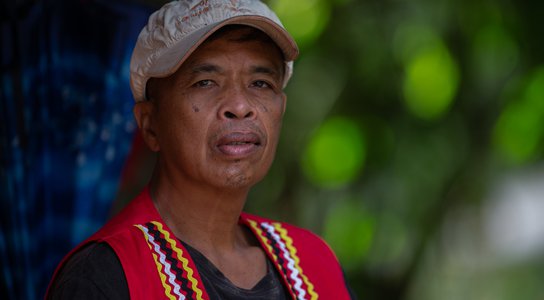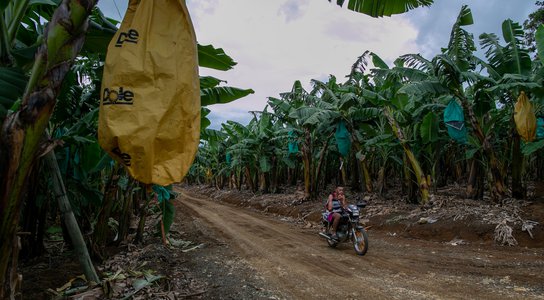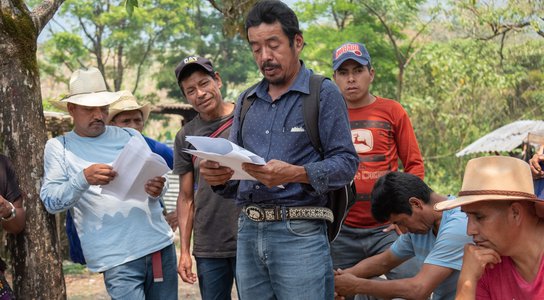In the shadow of hundreds of attacks and killings of land and environmental defenders in 2018, and now worrying threats to workers and civic freedoms as COVID-19 accelerates across the globe, the role of companies and their investors in protecting human rights is coming under increasing scrutiny.
The situation is increasingly urgent. In 2018, Global Witness found that more than three people were murdered on average every week for peacefully defending their land and environment against development projects, with at least 1,400 killed since 2012.
That’s why Global Witness and the Business & Human Rights Resource Centre, Investor Alliance for Human Rights, and International Service for Human Rights have launched two joint briefings detailing how companies and investors should take action in support of human rights defenders.
Read the Global Witness Briefing ‘Responsible Sourcing: The Business Case For Protecting Land And Environmental Defenders And Indigenous Communities’ Rights To Land And Resources’ (370kb, PDF)
Read the Business and Human Rights Resource Centre, International Service for Human Rights and Investor Alliance for Human Rights Briefing 'Safeguarding Human Rights Defenders: Practical Guidance for Investors' (3Mb, PDF)
These two briefings highlight the need for companies and investors to identify if their business practices may contribute to human rights abuses - and more specifically impact on human rights defenders.
What kind of threats are created?
Land and environmental defenders are often at risk from large scale investments across wide supply chains such as hydropower or agribusiness, where inadequate due diligence practices often fail.
Projects with poor risk assessment may not only lead to sometimes fatal attacks against indigenous communities and defenders, but cost huge amounts in both bottom line and reputation.
A lack of meaningful consultation around the Dakota Access Pipeline, for example, not only resulted in hundreds of injuries within the local indigenous community (including attacks by rubber bullets and guard dogs) but an additional $4.4 billion in costs to the banks financing the project in the form of account closures. This sum didn’t even include the costs related to reputational damage.
How are investors responding?
There is a growing awareness amongst the business community of the importance of this: just last month, a coalition of 176 investors, including asset managers, public pension funds, and faith-based institutions representing US$4.5 trillion, sent a letter to 95 major multinational companies calling for improved performance and disclosure on human rights due diligence.
But words must be backed up by action.
Through comprehensive due diligence practices, businesses can convert their environmental and human rights risks into opportunities, and improve supply chain resilience. Such moves are mutually beneficial to businesses, investors and defenders.
Recommendations
These new briefings provide a toolkit for investors, outlined how they must:
Embed responsible business conduct into policies and management systems. Companies should measure risks, engage with defenders and publish a policy on human rights defenders that includes a zero-tolerance stance on threats or violence against defenders.
Identify and assess adverse impacts in operations, value chains and business relationships. Identify potential risks to defenders’ freedoms, conduct environmental and social impact assessments, and check suppliers’ human rights and environmental policies.
Cease, prevent or mitigate adverse impacts. Stop activities that are causing or contributing to adverse impacts, including to human rights defenders, tailoring the response to the circumstances and defenders’ needs, and improving practices throughout the value chain.
Track implementation and results. Monitor progress regularly through consultation with stakeholders and independent experts to evaluate and improve the effectiveness of initiatives, conducting regular human rights impact assessments.
Communicate how impacts are addressed. Disclose exposure to defender risks through annual, sustainability or corporate responsibility reports. Funders must call for transparent reporting.
Provide for or cooperate in remediation when appropriate. Establish operational-level grievance mechanisms to address issues early before they escalate.
Contacts
You might also like
-
Press release ‘Material risks growing’ for businesses failing to engage with human rights defenders
New investor due diligence briefing from Global Witness and BHRRC outlines material risks and actions for investor to take as human rights defenders face increasing threats.
-
Blog post Momentum growing to make companies and finance accountable
As the new European Commission takes office, it will have to face growing calls for legislators to act on environmental and human rights risks linked to businesses.
-
Report Enemies of the State?
More than three people were murdered each week in 2018, with countless more criminalised, for defending their land and our environment.